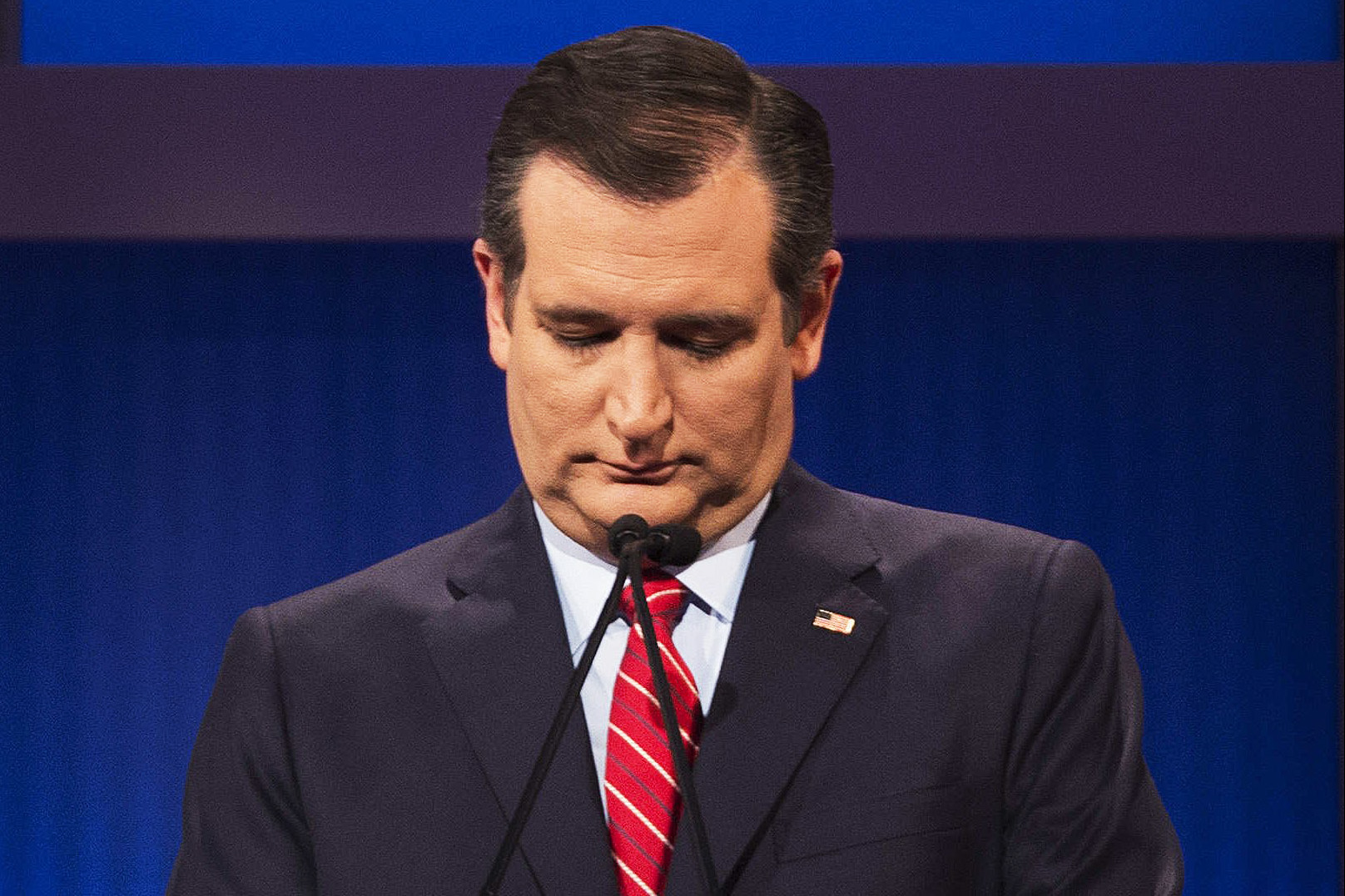Donald Trump didn’t show up for Thursday night’s Fox News debate. That didn’t mean he wasn’t the star yet again.
Former Florida Gov. Jeb Bush called him “a little teddy bear.” Sen. Marco Rubio of Florida called him “the greatest show on earth.” Sen. Ted Cruz of Texas said his personal insults were befitting “a maniac.”
Donald Trump, meanwhile, was across town, getting ready for his own campaign events after boycotting the debate amid a feud with Fox News host Megyn Kelly. It made for a split-screen duel just five days before Iowans kick off the race for the Republicans’ presidential nomination.
For his rivals, it’s a long-awaited moment to get their message across without the bombastic front-runner, but also an unpredictable opportunity as they remain locked in their own wars to be the best Trump alternative.
Cruz, the second-place candidate, was quickly put on the defensive as hungry rivals looked to eat into his lead without his greatest challenger on stage. Perhaps hoping to get in on a piece of the media-bashing boost that Trump was enjoying, Sen. Ted Cruz of Texas criticized the debate hosts for goading his rivals into assessing his record. “If you guys ask one more mean question, I may have to leave the stage,” Cruz threatened.
Not missing a beat, Rubio followed up to invite scrutiny. “Don’t worry. I’m not leaving the stage no matter what you ask me.”
At other points in the debate, the Fox News anchors were ready to keep the candidates in line. “No. No, no, no,” host Megyn Kelly said as Ohio Gov. John Kasich tried to break in. He yielded. “You’re a good man, Gov. Kasich.”
Cruz, too, kept criticizing the moderators. Host Chris Wallace seemed nonplussed. “It is a debate, sir,” Wallace said.
The moderators kept the questions coming, covering a lot of the familiar issues after six previous debates. But the candidates’ polish is far improved from their first meeting back in August, and advisers to the campaigns recognize that this might be their final chance to make an impression with Iowans.

Jim Watson—AFP/Getty ImagesRepublican Presidential candidate Texas Sen. Ted Cruz lat the Republican presidential debate Thursday, Jan. 28, 2016, in Des Moines, Iowa.
For Trump, the decision to skip the debate is a high-risk gamble depriving him of a high-profile platform to make his closing case to caucus-goers in Iowa. He’s betting that the announcement will only burnish his go-it-his-own-way credentials. But it will also allow Trump’s rivals to beat up on him without the deterrent that has protected him over the first six debates—Trump’s unmatched ability to counter-punch on stage.
Cruz is not the only candidate anxious about additional incoming from the other candidates. Rubio will face a host of candidates who see his rise in Iowa as an obstacle to theirs in New Hampshire.
“It probably means the target on our back just got a little bit bigger, but at the same time it means that we’re going to have a lot more opportunity for Marco to get his message out,” said Rubio adviser Todd Harris.
Meanwhile, Bush’s campaign is celebrating the news as an opportunity for their wonkish candidate to make his case without Trump on stage.
“It gives us more time at the microphone and more time to talk about answers to substantive issues that Iowa voters are demanding right now,” said David Kochel, a senior adviser to Jeb Bush’s campaign. “I think as you approach these voters in Iowa, New Hampshire and South Carolina, the campaign needs to be more serious and needs to be about things people care about. As the nomination gets turned over from the pundits to voters I think the voters want to hear from leaders who have accomplishment and records and results and they want to hear about that.”
Read More: Bush Mocks Trump Decision to Skip Debate
Retired neurosurgeon Ben Carson and Kentucky Sen. Rand Paul sought to use the Trump-less debate as an opportunity to reignite the support of their fading coalitions, with the former hoping for more speaking time and the latter lavishing in his return to the main stage. With small, but loyal constituencies, they are looking to win over some more converts in the final stretch.
For the three governors, Bush, Kasich and New Jersey Gov. Chris Christie, the debate is their first step toward trying to force a breakout moment before their showdown in the Granite State, but will be far less consequential than the Feb. 6 contest there 72 hours before polls close.
More Must-Reads from TIME
- Caitlin Clark Is TIME's 2024 Athlete of the Year
- Where Trump 2.0 Will Differ From 1.0
- Is Intermittent Fasting Good or Bad for You?
- The 100 Must-Read Books of 2024
- Column: If Optimism Feels Ridiculous Now, Try Hope
- The Future of Climate Action Is Trade Policy
- FX’s Say Nothing Is the Must-Watch Political Thriller of 2024
- Merle Bombardieri Is Helping People Make the Baby Decision
Write to Philip Elliott at philip.elliott@time.com